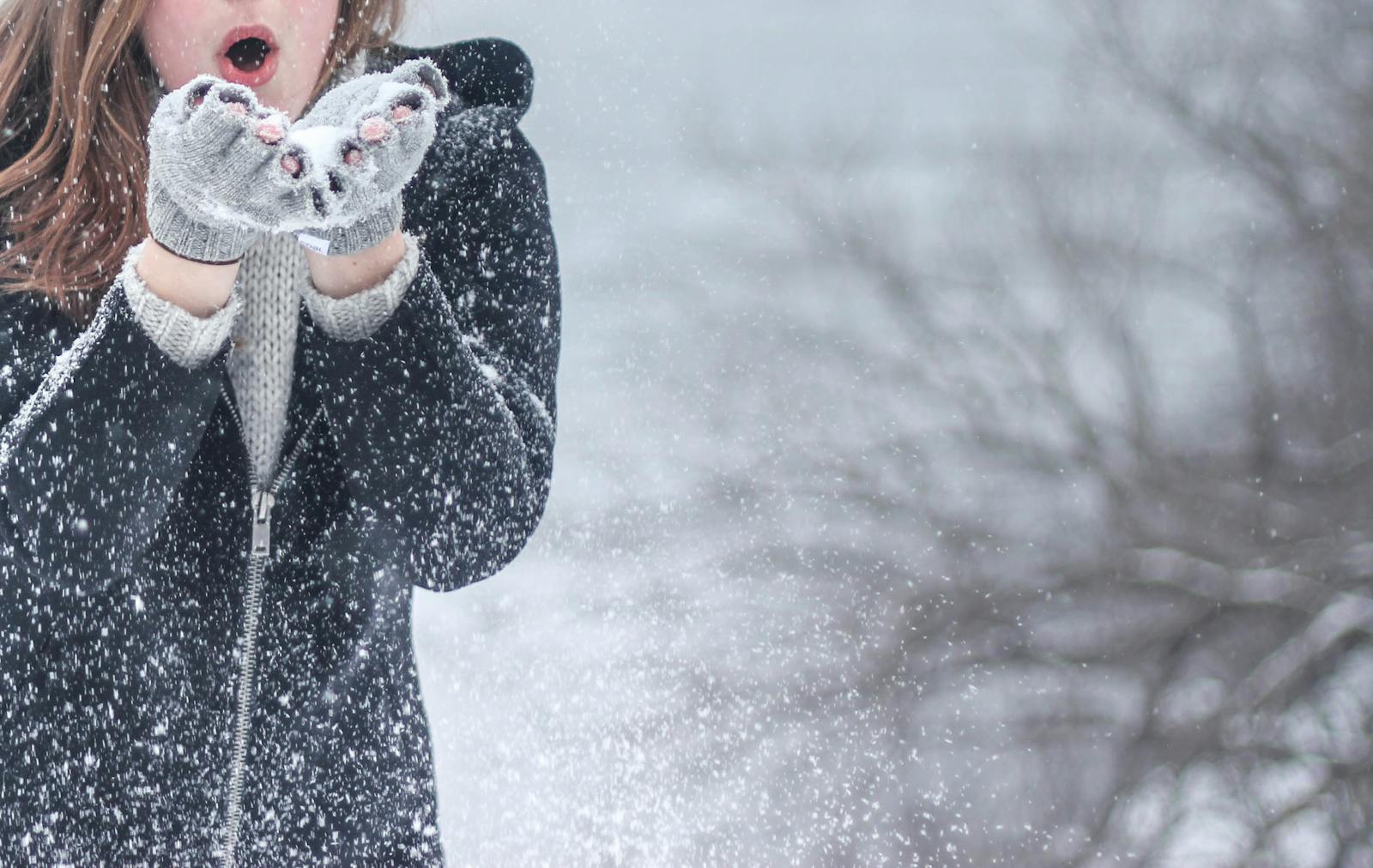Have you ever wondered why some people love hot, sunny days while others thrive in cool, rainy weather? Weather preferences—our personal feelings about the climate we find most comfortable or enjoyable—are shaped by a complex interplay of biological, psychological, and environmental factors. While we all experience the same basic types of weather, our individual reactions can vary dramatically. These preferences affect where we choose to live, the activities we enjoy, and even our moods.
Whether you’re someone who looks forward to winter or dreads the cold, the reasons behind your weather preference are more than just personal taste—they’re rooted in deep physiological responses, cultural influences, and psychological factors. In this article, we’ll explore the many factors that contribute to why people have weather preferences, including the role of genetics, cultural upbringing, and the psychological effects of different types of weather.
1. Genetics and Biological Factors
One of the most significant factors that influence weather preferences is our genetic makeup and biological responses to temperature. Human beings are warm-blooded, meaning our bodies regulate internal temperature to stay within a certain range. However, some people are naturally better at regulating heat or cold than others, which can impact their comfort levels in different climates.
For example, people who have a naturally higher basal metabolic rate (the rate at which the body uses energy) tend to feel warmer and may prefer cooler weather. In contrast, individuals with lower metabolic rates may find colder temperatures uncomfortable and gravitate towards warmer climates. Genetic factors also determine how well your body retains heat, sweats, or handles humidity, all of which contribute to weather preferences.
Thermoregulation—how your body manages temperature—is another important aspect of how you react to weather. People who sweat easily may prefer cooler weather because they overheat in hot climates. Conversely, individuals with a body that efficiently conserves heat may feel more comfortable in cold environments.
2. Adaptation to Local Climate
A person’s weather preferences are also shaped by the climate they’ve become accustomed to over time. This is often referred to as climate adaptation, and it plays a huge role in how we perceive comfort in various weather conditions. For example, someone who has grown up in a tropical environment may feel most comfortable in hot, humid weather, while someone raised in a colder region may thrive in cooler temperatures and find heat oppressive.
As humans, we have an impressive ability to adapt to our surroundings. Over time, people who live in a specific climate often acclimate to the average temperature of their region, adjusting their physiological responses to better handle the local weather. This can explain why someone who grew up in a consistently warm area might dislike cold winters, while those from colder regions may find the heat unbearable.
Seasonal preferences can also develop based on where you live. In places with distinct seasons, like parts of Europe or North America, people may grow accustomed to experiencing a balance of winter, spring, summer, and fall. This variety allows individuals to appreciate each season’s unique characteristics, and they may develop a particular fondness for one over another.
3. Childhood Experiences and Cultural Influences
Childhood experiences and cultural background can have a profound impact on weather preferences. From an early age, we are conditioned to associate certain types of weather with specific activities, emotions, or memories. For example, if you grew up spending sunny summer days playing outside, you may have developed a positive emotional connection to warm, sunny weather. On the other hand, if your fondest memories involve cozying up by the fireplace on cold, winter days, you might have a preference for colder temperatures.
Culture also shapes how we perceive different types of weather. In some cultures, warm, sunny weather is seen as ideal and is often linked to happiness, energy, and positivity. This may be reflected in media, social events, and societal attitudes. Conversely, other cultures may view cooler, cloudier weather as more productive or even refreshing, associating it with hard work, focus, or rest.
For example, Scandinavian countries, which experience long winters and short daylight hours, often embrace hygge, a cultural concept that promotes coziness, warmth, and well-being in cold weather. In contrast, countries with warmer climates may associate outdoor living and sunshine with vitality and health. These cultural associations can heavily influence an individual’s personal preference for certain weather conditions.
4. Psychological Effects of Weather
Psychology also plays a key role in why people develop preferences for certain types of weather. The weather has a direct influence on our mood, emotions, and even our levels of productivity. Different people respond to these psychological effects in different ways, shaping their weather preferences.
Sunlight and warm weather, for example, are often linked to higher levels of serotonin, the brain chemical that contributes to feelings of happiness and well-being. Exposure to sunlight increases serotonin production, which explains why many people feel happier and more energetic on sunny days. This positive psychological effect can lead to a preference for warm, sunny climates.
However, not everyone experiences the same emotional boost from warm weather. Some people may feel more at ease or focused in cooler, cloudy conditions. For these individuals, hot weather might bring feelings of lethargy or discomfort, whereas overcast days may provide a sense of calm and concentration.
Some people also experience weather-related conditions like Seasonal Affective Disorder (SAD), a type of depression that occurs in certain seasons, usually winter. People with SAD often feel low or depressed during colder, darker months, making them more likely to prefer warm, sunny weather. On the other hand, some people find colder weather energizing, associating it with clear-headedness and motivation.
5. Emotional Associations and Personal Memories
In addition to psychology, emotional associations with weather can play a major role in shaping preferences. We often associate certain weather conditions with significant events or periods in our lives, which can influence how we feel about different types of weather.
For instance, if you have happy memories tied to summer vacations, beach days, or outdoor barbecues, you might associate warm, sunny weather with feelings of joy, relaxation, and freedom. These positive associations can lead to a preference for summer and sunshine. On the flip side, if you have stressful or unpleasant memories tied to hot, humid weather (such as being uncomfortably hot at work or school), you may dislike warm weather and favor cooler conditions.
Conversely, if your favorite holidays, traditions, or family gatherings take place in the winter, you might associate cold weather with togetherness, comfort, and joy. These emotional ties make you more inclined to enjoy the winter season and the activities that come with it, such as skiing, cozying up indoors, or drinking hot cocoa by the fire.
6. The Influence of Activities and Lifestyle
A person’s lifestyle and the types of activities they enjoy can significantly shape their weather preferences. For example, someone who enjoys outdoor sports like hiking, running, or swimming might have a natural preference for warm, sunny weather because these activities are easier and more enjoyable in that kind of climate.
In contrast, people who prefer indoor activities like reading, gaming, or working on creative projects may find cloudy, rainy weather more conducive to their lifestyle. Cooler, darker days may create the perfect atmosphere for staying inside, focused and productive, without the distractions of outdoor activities.
Moreover, people who enjoy winter sports such as skiing, snowboarding, or ice skating may have a fondness for cold weather and snow. Their favorite activities require specific weather conditions, so they might actively look forward to winter. Similarly, someone who loves gardening, beach trips, or barbecues may associate warm weather with happiness and fulfillment.
7. Personality and Individual Differences
Weather preferences can also be influenced by personality traits and individual temperament. Extroverted people, for example, may prefer sunny, warm weather because it encourages social interaction and outdoor activities. Sunshine often brings people together for festivals, parties, or beach outings, making extroverts feel energized and engaged.
On the other hand, introverted individuals may prefer cooler, quieter, or rainy weather, which is more conducive to reflection and solitude. Overcast skies or light rain can create a calm, serene environment that feels less stimulating, which some people find more relaxing or peaceful.
Sensory sensitivity can also play a role. Some people are more sensitive to extreme heat, humidity, or cold, making them avoid certain weather conditions. If someone finds the sun too intense or the heat draining, they may prefer overcast or mild weather, where they feel more comfortable.
8. Health and Physical Comfort
Health conditions and physical comfort also contribute to people’s weather preferences. Individuals with certain medical conditions may find that specific weather types either alleviate or exacerbate their symptoms. For example, people with asthma or respiratory issues might struggle in humid or highly polluted environments and may prefer cooler, drier weather. Similarly, individuals with chronic pain conditions, such as arthritis, may find their symptoms worsen in cold, damp weather, leading them to favor warmer climates.
Additionally, allergies can influence how people feel about certain seasons or weather conditions. Those with severe pollen allergies may dread the arrival of spring, while people with seasonal allergies related to mold might prefer dry, sunny days over rainy or humid ones.
9. Regional Identity and Lifestyle Choices
Some weather preferences are also shaped by regional identity and lifestyle choices. People who live in urban environments may develop a preference for cooler weather due to the intensity of heat in cities, especially during summer. Cities tend to trap heat in buildings and streets, making summer months particularly hot and uncomfortable for urban dwellers.
In contrast, those who live in rural or coastal areas may prefer warmer weather, where they can enjoy outdoor activities, fresh air, and nature. The natural environment around someone’s home can shape how they feel about weather and seasons. People who live near water might love sunshine and heat because it allows them to enjoy activities like swimming or boating, while those who live in mountainous areas may have a preference for cooler, more temperate conditions.
Weather preferences are influenced by a complex combination of biological, psychological, cultural, and environmental factors. From genetic predispositions and the climates we grow up in to personal memories, health conditions, and lifestyle choices, many elements shape how we feel about different weather conditions. Whether you thrive in hot, sunny weather or prefer the calm of a rainy day, your unique weather preferences are the result of your body’s natural responses, your personal experiences, and even your cultural background.
Understanding the reasons behind weather preferences can help us appreciate the diversity of our reactions to different climates and environments. While we can’t control the weather, knowing why we feel more comfortable in certain conditions can lead us to make more informed choices about where we live, how we dress, and what activities we pursue. Whether you love the heat of summer or the chill of winter, your weather preferences are an important part of what makes you, you.




